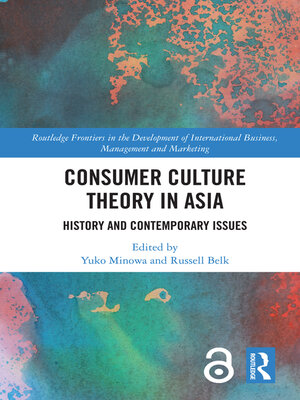Consumer Culture Theory in Asia
ebook ∣ History and Contemporary Issues · Routledge Frontiers in the Development of International Business, Management and Marketing
By Yuko Minowa

Sign up to save your library
With an OverDrive account, you can save your favorite libraries for at-a-glance information about availability. Find out more about OverDrive accounts.
Find this title in Libby, the library reading app by OverDrive.



Search for a digital library with this title
Title found at these libraries:
| Library Name | Distance |
|---|---|
| Loading... |
We live in times of increasing world uncertainty. Consumer culture in Asia has embodied such precariousness, with their unprecedented states of both prosperity and vulnerability.
Works in this volume examine the consumer cultures that exist in today's precarious Asia. They do this through culturally oriented, critical consumer research. How deeply has the consumer precariousness in Asia been intertwined with the sociohistorical patterning of consumption including class, gender, and other social categories? How do these problematics affect consumers' identity projects, consumer rituals, and marketplace cultures? How is consumer precariousness aggravated by the governmentality of the superpower? How does the changing landscape of inter-Asian and global popular culture impact consumer culture in these nations? Together, the authors in this volume attempt to answer these questions through consumer research within the paradigm known as consumer culture theory (CCT). Since most CCT inquiry has been in Western contexts, this volume augments the existing knowledge. It presents the most current, critical, historical, and material consumer studies focused on Asia.
This volume will be of interest to seasoned CCT researchers and academics, for anyone new to CCT, and for postgraduate students interested in CCT or writing a consumer culture-related thesis.







